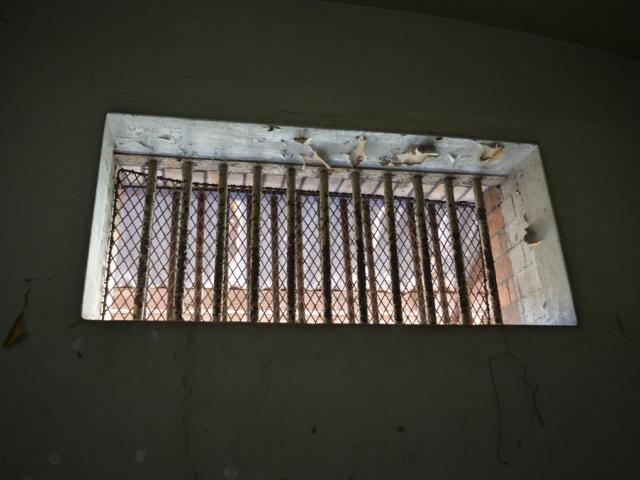
April sees 15 cases referred to the mufti and various preliminary and final verdicts of death: Egypt's criminal courts abandon their caution in meting out the death penalty
Press Release
The number of death sentences issued in Egypt has continued to rise since mid-2017. This is true of sentence referrals to the mufti and sentence confirmations at various levels of litigation. It has recently become true as well of the rate of executions. April 2018 ended as one of the worst months for the issuance of death sentences. Most of these were issued in ordinary criminal cases, not political, and in one case, 45 defendants were sentenced to death, leading observers to wonder if criminal judges in Egypt have any sentencing tools at their disposal but the death penalty.
On the first day of April, the Court of Cassation denied the appeal filed by Adel Abd al-Nour, known as Asaliya. He was sentenced to death after being convicted of killing the owner of a seed and nut shop in Alexandria; he appeared on a surveillance camera butchering the victim. The court referred his case to the mufti for review on March 9, 2017.
The first week of April alone saw the following sentences: the Cairo Felony Court sentenced one person to death for murder, which occurred in a fight following a traffic dispute; on April 3, the Shebin al-Kom Felony Court sentenced two people to death; another four people were sentenced to death in connection with a blood feud by the Sohag Court; on April 5, the Helwan Felony Court sentenced two defendants to death in a robbery-linked homicide.
On April 10, the Ismailiya Felony Court sentenced one person to death who was convicted of killing his father. The same day, the Cairo Felony Court issued a death sentence for 11 defendants in what was popularly known as the “car-wash fight case” in Old Cairo. Two people were killed and five more injured in the incident. A third court that day also sentenced two brothers to death after their conviction for killing a contractor and setting his corpse on fire.
The most publicized sentence of the month came on April 11 when a military court referred the sentencing papers of 36 defendants to the mufti in military case no. 165, for their involvement in bombings targeting the Butrosiya Church in Abbasiya, the Mari Girgis Church in Tanta, and the Murqosiya Church in Alexandria. The final sentencing date has been set for May 15.
On April 12, the Zaqaziq Felony Court sentenced three people to death in connection with a bloody row between two families. On April 15, the same court handed down the death penalty in connection with another murder. On April 16, three defendants were sentenced to death for killing their brother by the Alexandria Felony Court, and on April 17, the Cairo Felony Court sentenced one person to death for killing a Yemeni student in the course of a robbery.
On April 15, the Court of Cassation upheld the death sentences issued in the Osim Cell case, denying the appeal filed by the 24 defendants and affirming the sentence of death for four defendants issued two months earlier.
Referrals of sentencing papers to the mufti proceeded apace as well. In addition to the referrals in the church bombings case, sentencing papers were referred to the mufti in 15 other cases, most recently on April 24 in connection with a murder in al-Tibbin. In total, the Egyptian Initiative for Personal Rights identified 118 defendants whose sentencing papers were referred to the mufti. The most well known of these cases was the so-called Gypsies and Upper Egyptians case, which dates back to 2012. On April 14, the Alexandria Felony Court referred the papers of 45 defendants in the case to the mufti, in connection with the killing of three people in a fight involving firearms and bladed weapons.
The EIPR has not had the opportunity to review the files of all these cases of all these cases, develop a legal position, and monitor compliance with fair trial guarantees, considered fundamental constitutional rights. Nevertheless, we wish to underscore the rapid and sharp shift in the temperament of the Egyptian criminal justice system. Up until 2012, Egypt was among the most conservative dispensers of the death penalty, among those countries that still maintained capital punishment in their laws and judicial practices. But today, this wholly justified conservatism—insofar as the death penalty, unlike other punishments, cannot be retracted once implemented—is being enthusiastically reversed. This does not only in crimes related to terrorism and political violence.
The EIPR reaffirms its position and again calls for a moratorium, even temporary, on the death penalty, pending a society-wide debate over its full abolition. This is in line with the proposals of the Egyptian government made during its vote on the death penalty resolution in the 36th session of the UN Human Rights Council. We also urge the parliament to reconsider penal laws, which consistently increase the number of crimes punishable by death. The parliament should ensure that the death sentence is only applied to the most serious crimes and in the narrowest of circumstances while also amending the Code of Criminal Procedure to bar the referral of civilians charged with crimes carrying the death penalty to any exceptional or military court on any grounds whatsoever.



